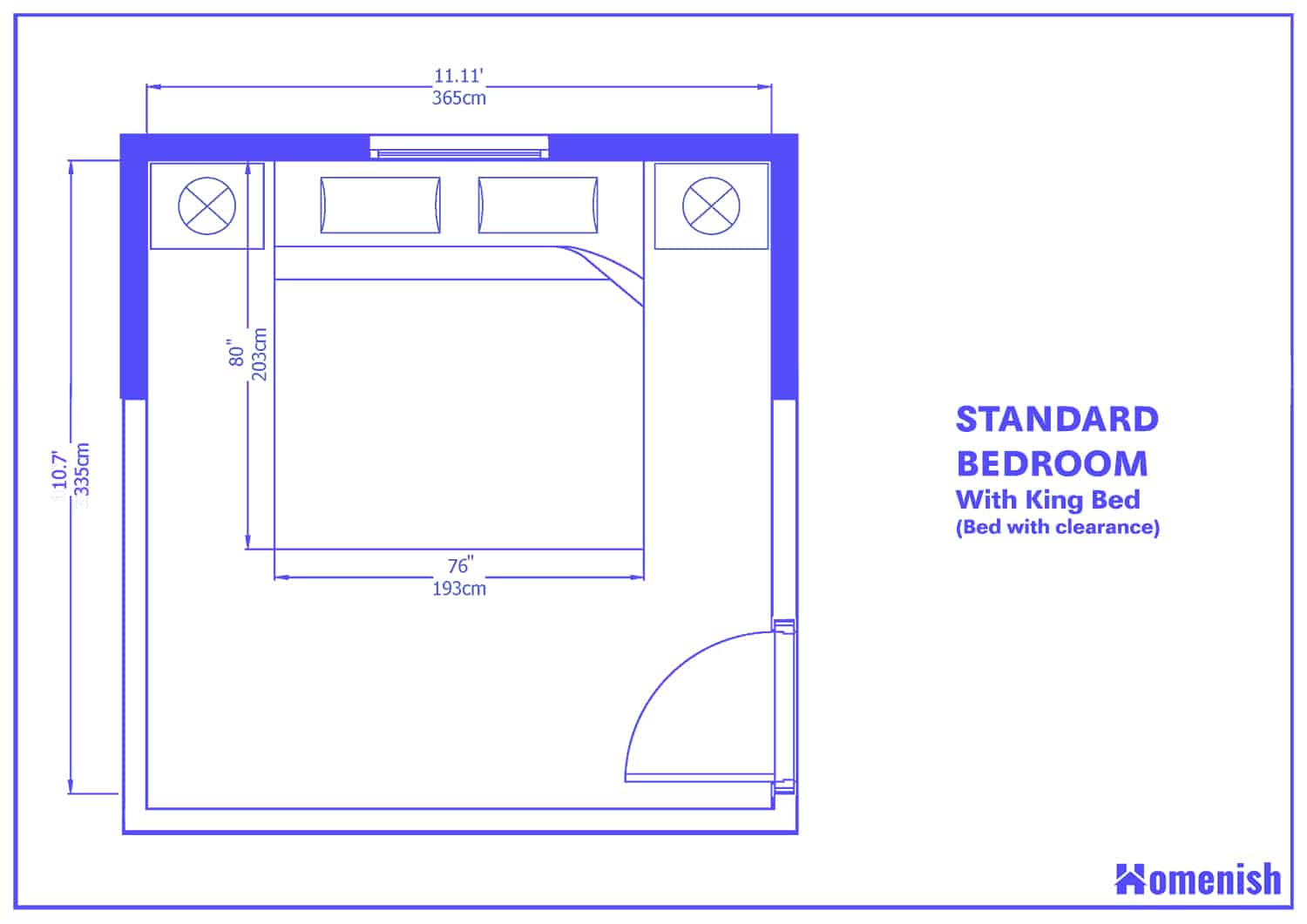King Size Bed Dimensions and Space Requirements: What Size Bedroom For King Size Bed

A king size bed is a popular choice for couples or anyone who enjoys ample sleeping space. It offers generous width and length, providing a luxurious and comfortable sleeping experience. To ensure that a king size bed fits comfortably in your bedroom, it’s crucial to understand its dimensions and the necessary space requirements.
King Size Bed Dimensions
The standard dimensions of a king size bed are 76 inches wide and 80 inches long. However, there are different variations of king size beds, each with its own unique dimensions. Here’s a table outlining the dimensions of common king size bed types:
| Bed Type | Width | Length |
|---|---|---|
| Standard King | 76 inches | 80 inches |
| California King | 72 inches | 84 inches |
| Eastern King | 80 inches | 80 inches |
Measuring Available Space
To determine if a king size bed will fit in your bedroom, you need to measure the available space accurately. Here’s a simple guide to help you:
* Measure the length and width of the room: Use a measuring tape to determine the overall length and width of your bedroom.
* Consider existing furniture: Take into account the dimensions of any existing furniture, such as dressers, nightstands, or closets.
* Account for clearance: Allow at least 2-3 feet of clearance on each side of the bed for comfortable movement and access.
* Check for obstacles: Ensure there are no obstructions, such as doors, windows, or radiators, that could hinder the placement of the bed.
Floor Plan Example
Here’s a simple floor plan example illustrating the placement of a king size bed in a bedroom, highlighting the required clearance:
[Describe a simple floor plan with the king size bed placed in the center, with 2-3 feet of clearance on each side and at the foot of the bed. Include dimensions for the bedroom, bed, and clearance space.]
Recommended Bedroom Size for a King Size Bed

A king-size bed is a luxurious addition to any bedroom, offering ample space for two people to sleep comfortably. However, to fully enjoy the benefits of a king-size bed, it’s crucial to have a bedroom that can accommodate it properly. A well-proportioned bedroom ensures comfortable movement, adequate furniture placement, and a sense of spaciousness.
Minimum Bedroom Size, What size bedroom for king size bed
The recommended minimum bedroom size for a king-size bed is 10 feet by 12 feet (120 square feet). This provides enough space for the bed itself, along with two nightstands, a dresser, and potentially other furniture pieces, while still allowing for comfortable movement around the bed.
Ceiling Height Impact
Ceiling height plays a significant role in the overall feeling of space in a bedroom. Higher ceilings create a more expansive and airy atmosphere, enhancing the sense of spaciousness even in a smaller bedroom. Conversely, low ceilings can make a bedroom feel cramped, even if the floor area is sufficient. Aim for a minimum ceiling height of 8 feet to avoid a feeling of claustrophobia.
Comparison with Other Bed Sizes
To understand the space requirements of a king-size bed, it’s helpful to compare it with other bed sizes:
| Bed Size | Dimensions | Recommended Room Size | Twin | 39" x 75" | 9 ft x 9 ft | Full | 54" x 75" | 10 ft x 10 ft | Queen | 60" x 80" | 10 ft x 12 ft | King | 76" x 80" | 10 ft x 12 ft | California King | 72" x 84" | 11 ft x 12 ft |
|---|
As you can see, a king-size bed requires a larger room than other bed sizes. However, the additional space provides a luxurious and comfortable sleeping experience.
Factors Influencing Ideal Bedroom Size
Several factors influence the ideal bedroom size for a king-size bed, including:
- Furniture placement: The number and size of furniture pieces you plan to include in the bedroom will affect the required space. A large dresser or armoire will require more room than a smaller nightstand.
- Window placement: The location and size of windows can impact the layout and flow of the bedroom. Large windows may require more space for furniture placement.
- Personal preferences: Some individuals prefer a spacious bedroom with ample walking space, while others are comfortable with a more compact layout. Personal preferences play a significant role in determining the ideal bedroom size.
